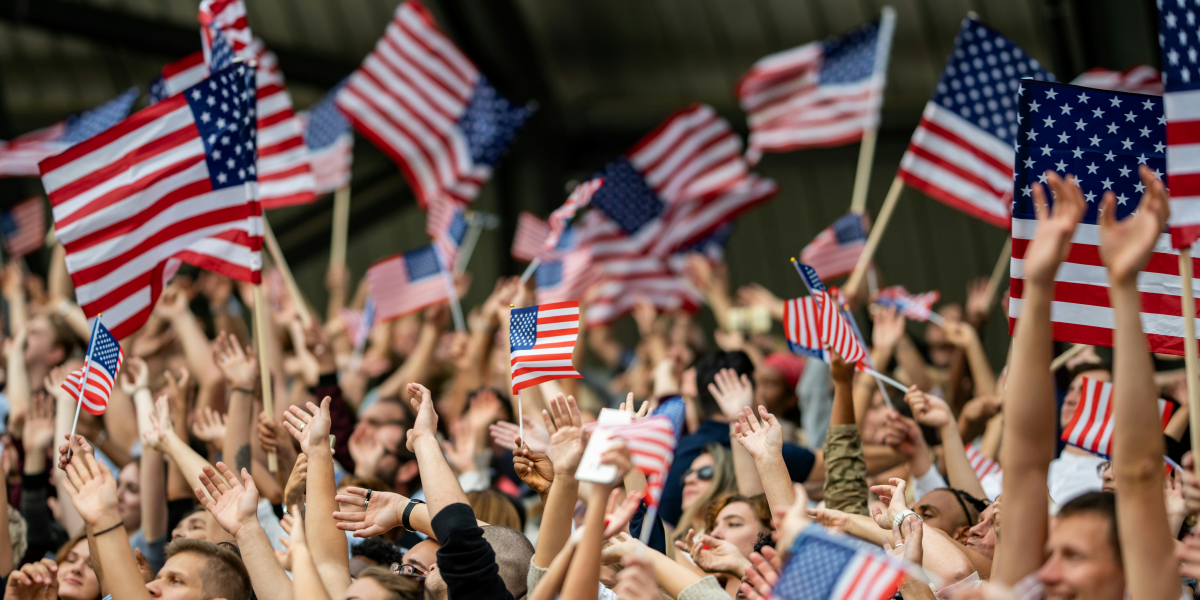Patriotism is deeply ingrained in American culture, reflected in various symbols and expressions that honor the country’s history, values, and ideals. From the flag to national holidays, these representations foster a sense of unity and pride, reminding citizens of the principles on which the nation was founded.
The American Flag: A Symbol of Freedom and Unity
The American flag is one of the most powerful symbols of patriotism in the United States. Its stars and stripes represent the country’s history, states, and unity, making it a central expression of national pride.
Flag Etiquette and Traditions
The flag holds a revered place in American culture, with established etiquette guidelines to honor it properly. From raising and lowering it at specific times to handling it with care, Americans show respect for the flag through these practices. Events like Flag Day, celebrated each June, pay tribute to the flag’s symbolism and history, reinforcing its importance in American identity.
National Holidays That Celebrate Patriotism
National holidays in the United States offer opportunities for Americans to come together and celebrate their shared heritage and freedoms. These observances honor the country’s history, its heroes, and the principles it upholds.
Independence Day: Celebrating Freedom
Every year on July 4, Americans celebrate Independence Day to honor the signing of the Declaration of Independence in 1776. Festivities across the nation, including fireworks, parades, and gatherings, reflect the country’s appreciation for the freedoms won through sacrifice and perseverance. The day serves as a reminder of the resilience and determination that led to the founding of the United States.
Memorial Day and Veterans Day: Honoring Service
Memorial Day and Veterans Day pay homage to those who have served in the U.S. Armed Forces. Memorial Day, observed in May, honors fallen soldiers, while Veterans Day in November recognizes all who have served. These holidays provide an opportunity for Americans to express gratitude to those who defended the nation’s freedoms, often through ceremonies, parades, and moments of silence.
The National Anthem and Pledge of Allegiance
The national anthem, “The Star-Spangled Banner,” and the Pledge of Allegiance are two expressions of American patriotism that hold special meaning. Both are frequently recited at public events, serving as reminders of the country’s ideals and history.
The Story Behind “The Star-Spangled Banner”
Written by Francis Scott Key during the War of 1812, “The Star-Spangled Banner” captures a pivotal moment in American history when the nation defended its independence. Its powerful lyrics, describing the flag’s endurance amid battle, symbolize resilience and hope. Sung at events from sports games to government ceremonies, the anthem unites Americans in honoring their shared heritage.
The Pledge of Allegiance: A Commitment to Unity
The Pledge of Allegiance, recited in schools and at public gatherings, affirms loyalty to the flag and the country it represents. Written in the late 19th century and updated over time, the Pledge emphasizes unity, liberty, and justice. It reinforces American values, serving as a daily reminder of citizens’ commitment to the nation’s principles.
Patriotic Monuments and Memorials
Across the United States, monuments and memorials commemorate the nation’s history and honor those who shaped its course. These sites serve as physical expressions of patriotism, allowing Americans to reflect on the sacrifices and achievements of past generations.
The Lincoln Memorial and Washington Monument
The Lincoln Memorial and Washington Monument are two iconic landmarks in Washington, D.C., celebrating the legacies of Abraham Lincoln and George Washington. These memorials attract millions of visitors each year, offering a place for reflection on the contributions of these leaders to American ideals of freedom and equality.
Honoring Fallen Heroes
Monuments such as the Vietnam Veterans Memorial, the World War II Memorial, and Arlington National Cemetery honor those who served and sacrificed for their country. These sites provide a space for gratitude and remembrance, allowing Americans to pay their respects to those who defended the nation’s values. Through these tributes, the spirit of patriotism endures, connecting generations with the shared values of courage and service.
Patriotic Celebrations in Everyday Life
Patriotism extends beyond formal symbols and holidays; it is expressed daily by citizens in various ways. From community gatherings to supporting local service members, Americans celebrate their country and show gratitude for its freedoms through simple, heartfelt actions.
Supporting Local Heroes
Many Americans show patriotism by supporting local veterans, active-duty military members, and first responders. This support takes many forms, from volunteer work and donations to participating in events honoring these individuals. Through these actions, citizens express gratitude for those who dedicate themselves to the nation’s safety and well-being.
Celebrating America’s Diversity
American patriotism embraces the country’s diversity, celebrating the many cultures, backgrounds, and traditions that make up its population. Events like multicultural festivals and local parades highlight the unique contributions of different communities, reinforcing the idea that diversity strengthens national unity.
Published by: Annie P.














